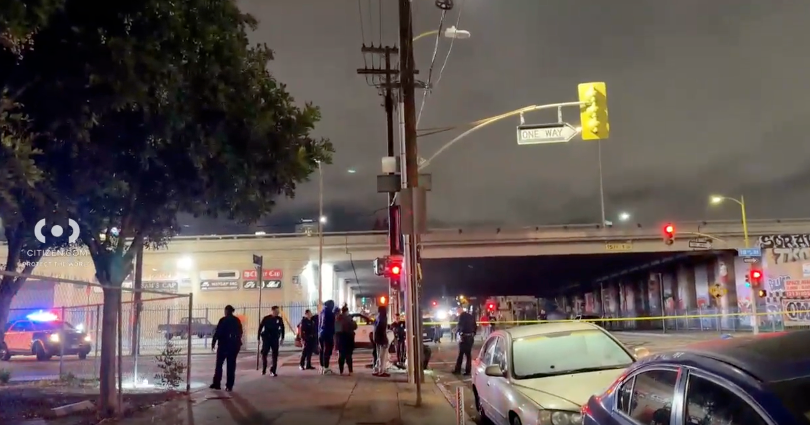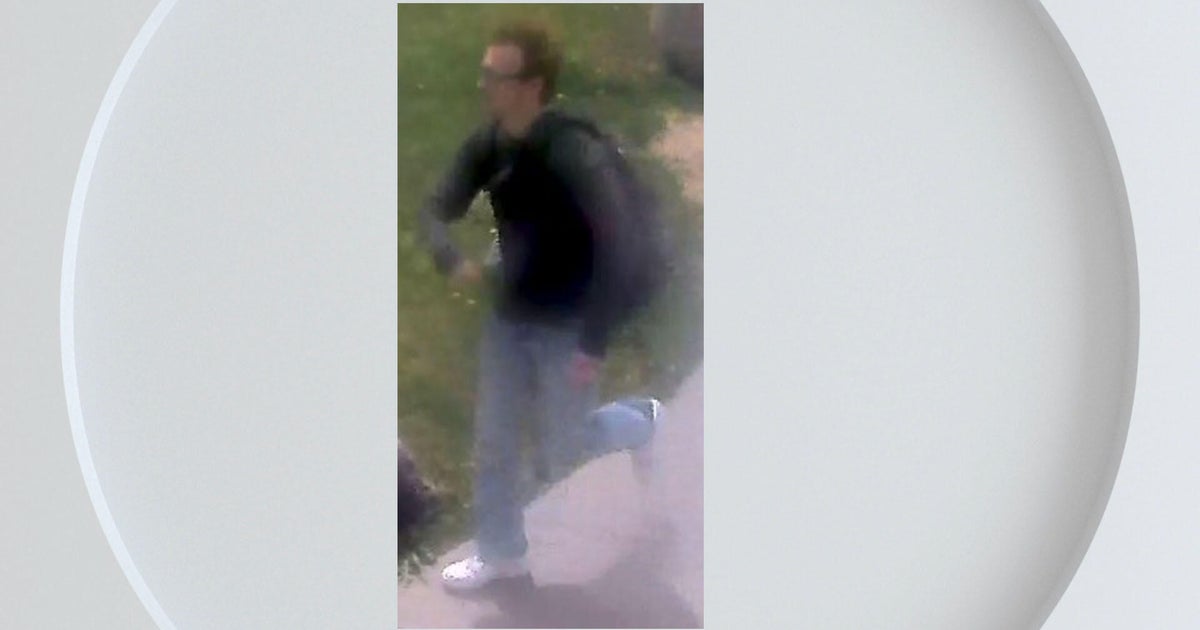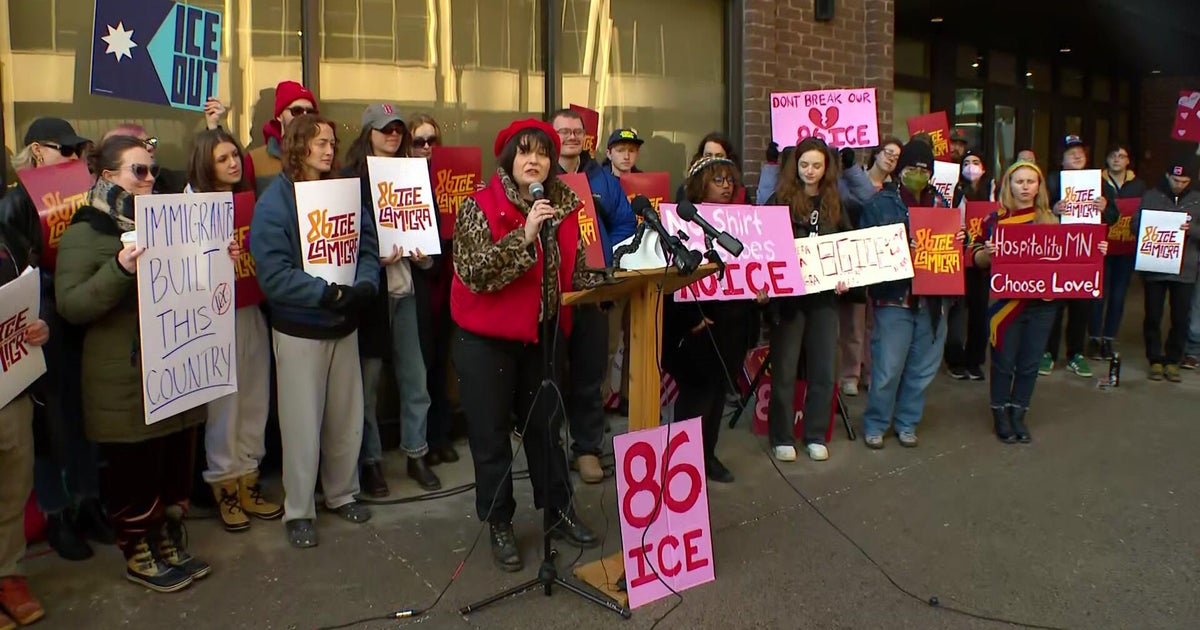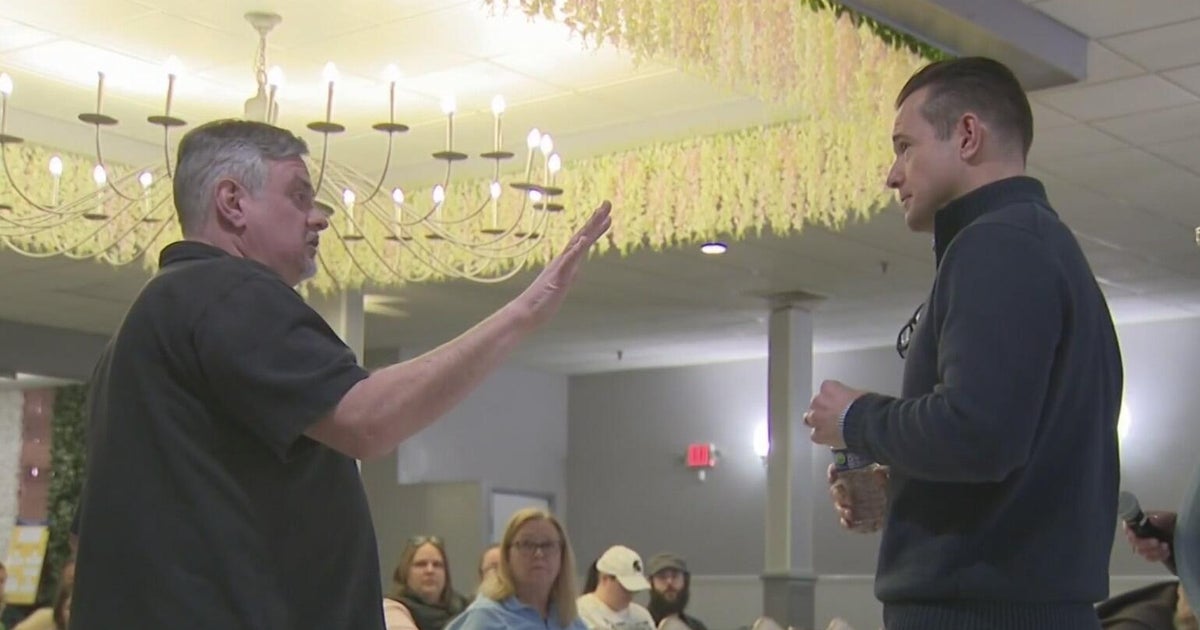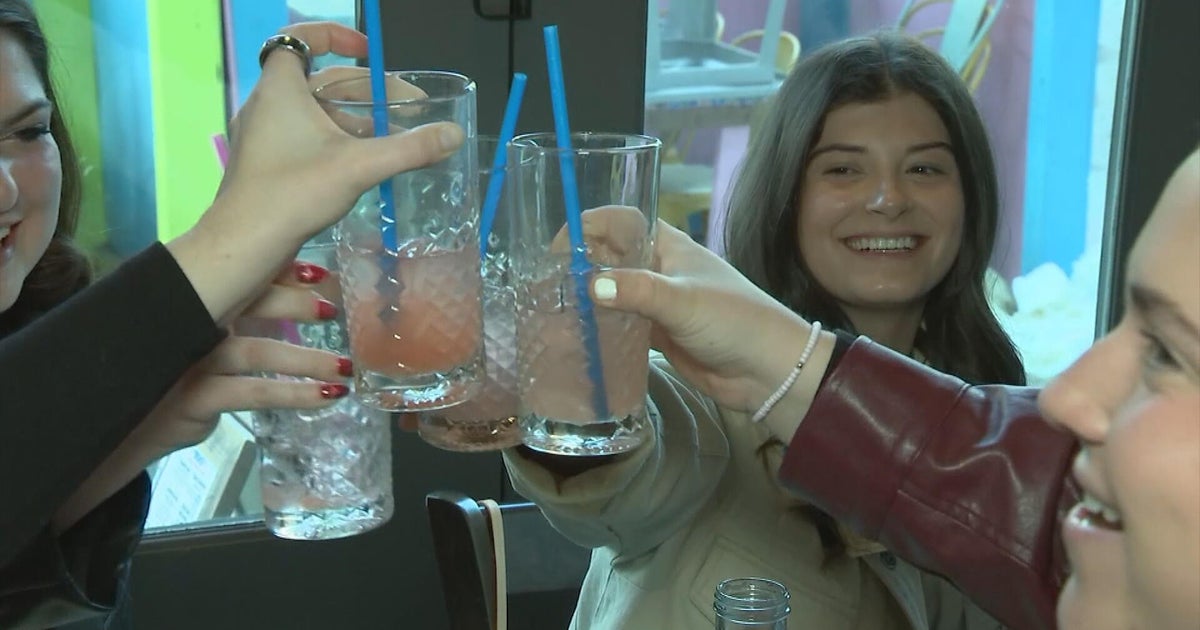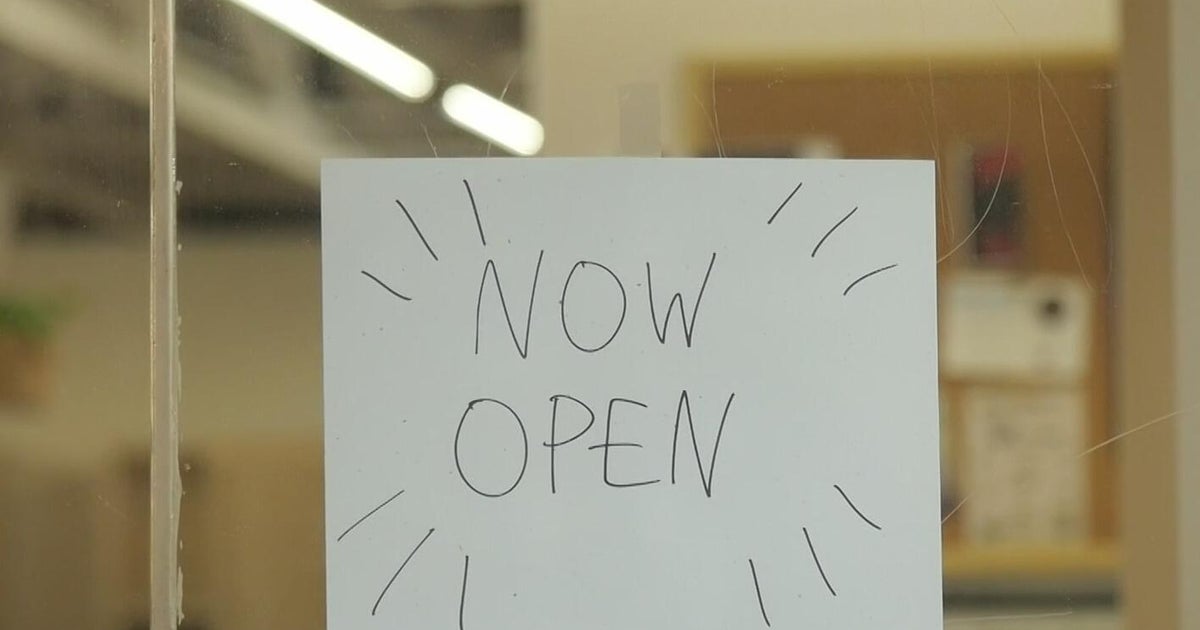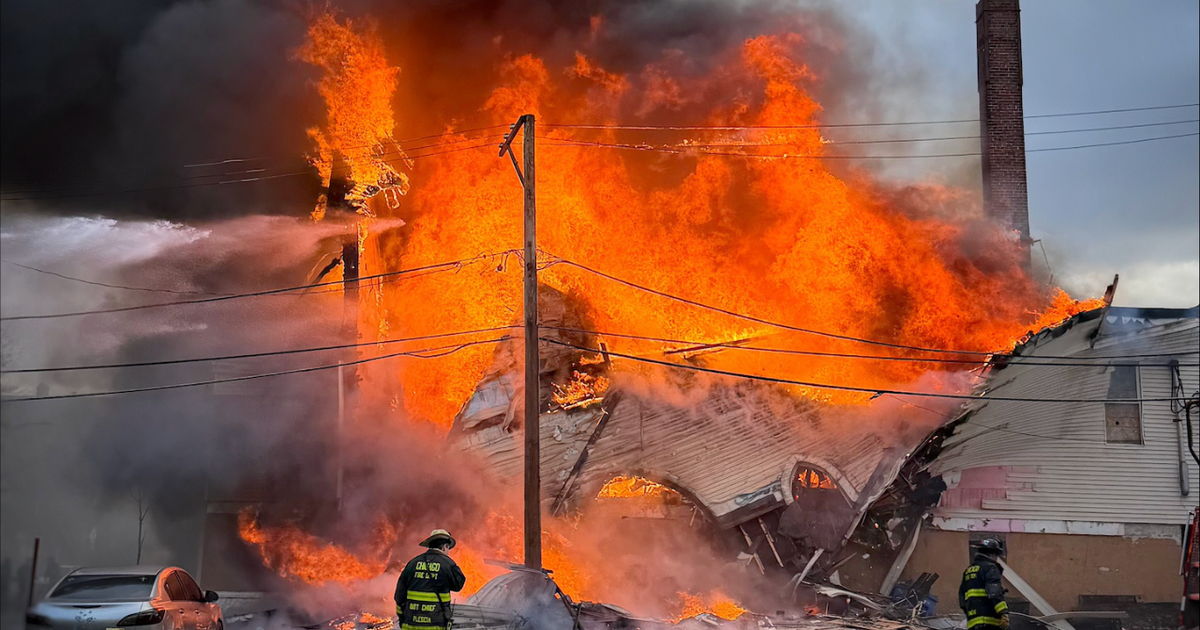Provocative Anti-Rape Art Exhibit Opens Downtown
LOS ANGELES (CBS) — Artist Suzanne Lacy rolls red paint over tape on a large map outside of Los Angeles Police headquarters, boldly marking another rape in the city.
CBS2's Stephanie Abrams interviewed the artist and a woman deeply affected by the art's message.
The map is a temporary art installation titled "Three Weeks in January." The project began yesterday, and will be shown through February first. Each day, Lacy stamps the word rape on the map from the locations she gets from the police reports on sexual assault cases. "In the seventies no one talked about being raped," said Lacy. "It was not part of the public discourse. It was hardly part of private discourse."
The first map Lacy created for the city was displayed in 1977. "If rape was a household experience we meant to make it a household word," said Lacy. At the end of those three weeks that May, 84 rapes were marked on that map. This is the second day of "Three Weeks", and already the map shows seven rapes.
At the end of these three weeks, the map will not only show the reported rapes but also those that are not reported. Those statistics will be gathered from organizations like Peace Over Violence that have rape hotlines. Claudia Batres Flores is the hotline and training supervisor there. "What you are seeing on the map now are the reported rapes, but the vast majority don't get reported so it's important to see the whole picture and not miss some of the numbers," explained Flores. The unreported rapes will be marked with a fainter stamp completing the map after February first.
The art installation is much more than a map, it's a interactive experience. A bench with built in speakers was placed across from the map. When commuters sit on the bench they will hear the voices of rape victims. The stories are compiled by Bruno Louchouam, the sound artist for the piece. (You can listen to the audio by going to the "Three Weeks" website.
When Helena Lazaro saw the exhibit for the first time it brought tears to her eyes.
Lazaro was abducted from a car wash at the age of 17 and driven to three different locations where she was raped. It took police 14 years to find and convict her attacker -- he turned out to be a serial rapist. "Each one of those stamps represents a real person and they need to be treated with the respect and gravity that it deserves," said Lazaro.
She says even after her rape she felt violated by the negative and critical response she got for years before police were able to apprehend her attacker. "We still hear people say why was she wearing that? Why was she by herself? When we should be asking 'Why do people rape and how can we prevent rape?'"
Lazaro sees the city uniting to shed light on this horrible crime and she feels relieved. "I still can't believe that when I get to talk about it people don't think I'm some damaged person. I'm a regular person. My family is proud of me now."
"Three Weeks in January" is presented by Los Angeles Contemporary Exhibitions. There will also be several demonstrations and activities throughout the next three weeks including a candlelight vigil outside police headquarters. For more information about the exhibit or activities, click here.
"I hope when people see this exhibit, they remember somebody in their life who was raped, find strength themselves if they have been impacted by violence and they go away with a deeper sense of sensitivity," says Lacy.

